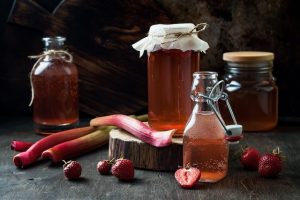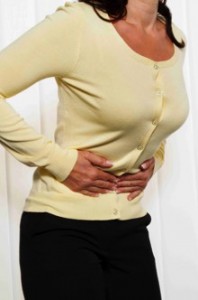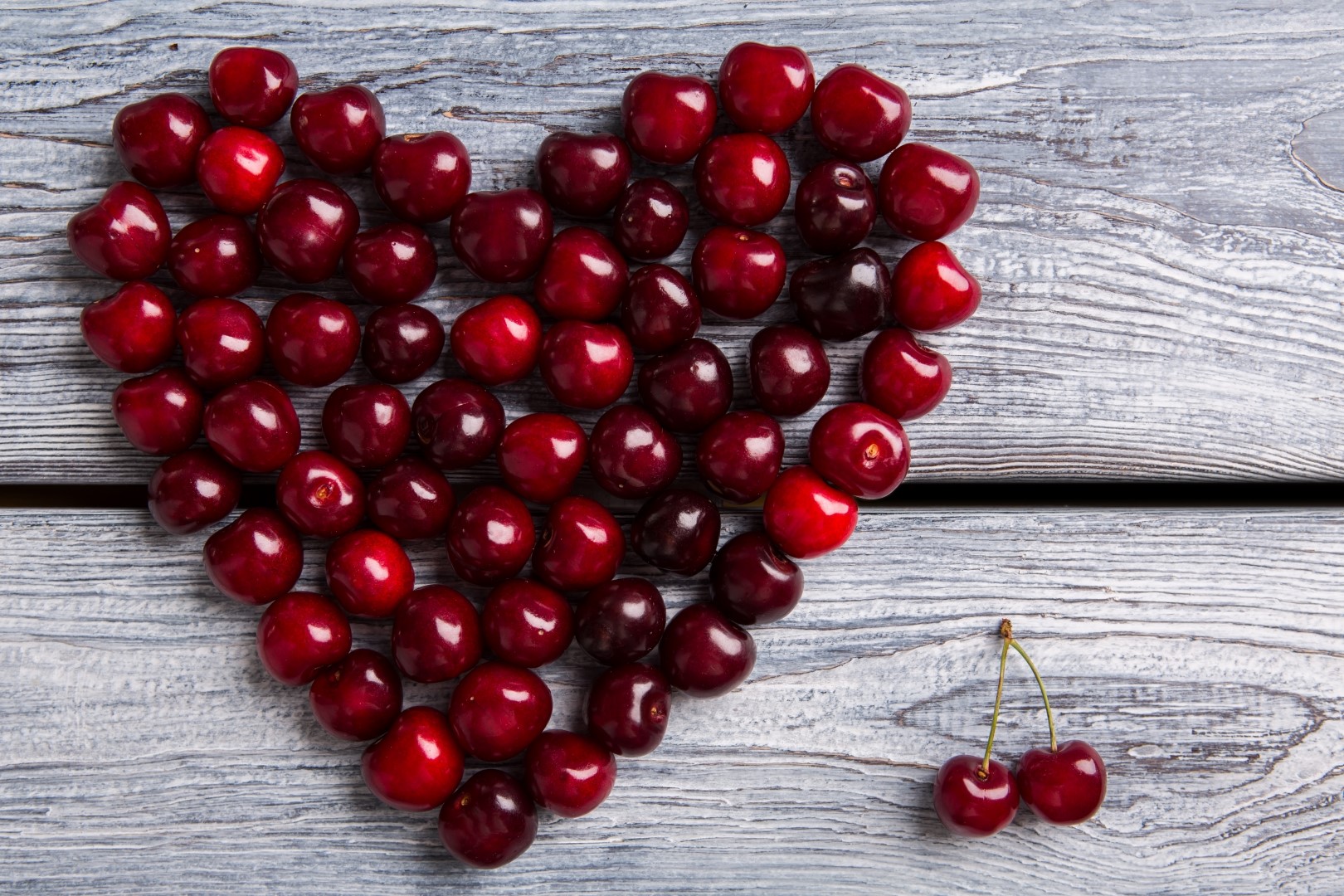 Vitamin D (Cholecalciferol) is a vitamin that is actually a hormone-like compound. It is produced in the skin of animals (including us) when exposed to sunlight. The RDA recommended daily allowance is 400 iu per day for infants, 600 for children, pregnant women and adults and 800 iu for the elderly (University of Maryland).
Vitamin D (Cholecalciferol) is a vitamin that is actually a hormone-like compound. It is produced in the skin of animals (including us) when exposed to sunlight. The RDA recommended daily allowance is 400 iu per day for infants, 600 for children, pregnant women and adults and 800 iu for the elderly (University of Maryland).
These recommended intakes along with normal blood levels are surrounded by much controversy particularly in the fields of holistic health and functional medicine. It is possible to be deficient in vitamin D through insufficient exposure to sunlight and inadequate dietary intakes. There are two main forms in which vitamin D is ingested: cholecalciferol and ergocalciferol. Cholecalciferol is also known as D3 and is found in animal foods and made by us through sunlight. If you, like me, have chosen to eat a completely plant based diet AND if you live somewhere more than a little rainy or spend less than a few hours daily outside you may ask “am I getting enough D?”
It is very likely impossible to get enough vitamin D if you live north of Atlanta, Georgia in the winter. Even being outside for the available sunlight hours. This definitely includes where I live off the coast of Vancouver, BC.

Dairy and cereals are generally fortified with D2, ergocalciferol and do not naturally contain any vitamin D. There is much debate as to whether D2 is useful for the human body and some sources suggest that it is harmful to ingest. It is difficult to obtain adequate vitamin D levels if you are living far away from the equator, for example in the northern part of North America or Europe. It is useful to have vitamin D levels tested and to have an awareness of the optimal range so you can be the judge of what works best for you and what will compliment your current health goals. Remember the lab normal is the mean average of the levels for people who get tested at that lab. You and I don’t want to settle for normal.
Regarding our topic of brain health as it relates to gut health and probiotics it is necessary to have adequate D to rebuild a leaky gut and repopulate healthy flora and immune system.
How your body uses Vitamin D
- Many immune cells have vitamin D receptors and low D levels have been associated with autoimmunity
- Vitamin D stimulates calcium reabsorption in the GI tract and mineralization in the bones
- Many other cells in the brain, colon, breast tissue and immune system among others have D receptors and the uses of vitamin D in these receptors is being studied

Deficiencies and excesses
Extreme deficiencies in children can cause Rickets, a softening of the bones and in adults Osteomalacia, a similar condition. Symptoms of excess include thirst, weight loss, diarrhea, constipation and excess urination. The following conditions are being studied either for their connection to low D levels or their improvement with D supplementation:
- Respiratory Infections
- Autoimmunity
- Psoriasis
- Rheumatoid Arthritis
- Diabetes Types 1 and 2
- Asthma
- Periodontal diseases
- Depression, Postpartum Depression, Schizophrenia and other neurological conditions
- Cancer, many types
- Sleep disorders
Interestingly human studies on Vitamin D2 supplementation do not have the same results as the D3 supplementation studies. For instance D2 does not seem to have the same effect as D3 on cancer which may be because it does not have the same effect on our immune systems.
Are you getting enough?
How much is enough and how much is too much? It is theoretically possible to take in too much from food sources but it is unheard of from sunlight even though we can make 20000 IU vitamin D per hour of sunlight exposure depending on our skin tone. Melanin in our skin prevents us from making too much D, getting burnt, or being  overexposed to sunlight. This does mean the darker each of our skin is the less D we will make when exposed to sun. This may not present a problem in the summer but in the winter it certainly can.
overexposed to sunlight. This does mean the darker each of our skin is the less D we will make when exposed to sun. This may not present a problem in the summer but in the winter it certainly can.
Vitamin D is fat soluble so it is stored in the body. While the “normal” ranges of D in blood tests are usually defined as 30-74 nmol/L studies show that levels at least over 75 nmol/L and ideally within 90 and 100 nmol/L are advantageous for bone density, immunological function and colorectal cancer among other conditions (NCBI2). So the jury is out. I have personally found vitamin D to be very helpful for my digestive health and rebuilding. In fact it is essential for digestive integrity.
Contributing Factors
- As we age our kidneys can become less efficient in converting vitamin D2, ergocalciferol, to its active form and that is why the elderly are recommended to increase supplementation
- Conditions of the digestive tract can inhibit absorption of vitamin D, particularly for anyone with a history of IBD or IBS including Celiac
- Prednisone and other corticosteroids can deplete vitamin D
- Antacids and some cholesterol lowering medications can lower D levels in the body
- Melanin in darker skin colours absorb UVB rays, making less available for D synthesis
- Low cholesterol levels in the body reduce the amount of D that can be synthesized in the skin, it is a cholesterol dependent process
Supplementation
It is recommended to supplement with D3 rather than the D2 that is added to fortified foods because the results of human studies using  these two forms have been so different. D3 supplements have traditionally been produced from sheep lanolin, genetically modified yeasts, mushrooms and lichens which are actually symbioses between fungi and algaes. Vegan D3 supplements are now made from lichens. It is great to know that there are many vegan D3 supplements now available so you can have adequate D levels without having to compromise anything. There are liposomal, encapsulated, micronized, whatever is the best absorbed for you. It is important to monitor vitamin D levels in the body when supplementing to find the right balance for you.
these two forms have been so different. D3 supplements have traditionally been produced from sheep lanolin, genetically modified yeasts, mushrooms and lichens which are actually symbioses between fungi and algaes. Vegan D3 supplements are now made from lichens. It is great to know that there are many vegan D3 supplements now available so you can have adequate D levels without having to compromise anything. There are liposomal, encapsulated, micronized, whatever is the best absorbed for you. It is important to monitor vitamin D levels in the body when supplementing to find the right balance for you.
References
Aranow, Cynthia. Vitamin D and the Immune System. J Investig Med. Aug 2011; 59(6): 881–886. doi: 10.231/JIM.0b013e31821b8755. Retrieved from www.ncbi.nlm.nih.gov/pmc/articles/PMC3166406
Bischoff-Ferrari HA1, Giovannucci E, Willett WC, Dietrich T, Dawson-Hughes B. Estimation of optimal serum concentrations of 25-hydroxyvitamin D for multiple health outcomes. American Journal of Clinical Nutrition. 2006 Jul;84(1):18-28. Retrieved from www.ncbi.nlm.nih.gov/pubmed/16825677
National Institutes of Health Office of Dietary Supplements. U.S. Department of Health & Human Services. Retrieved fromhttp://ods.od.nih.gov/factsheets/VitaminD-Consumer/
University of Maryland. University of Maryland Medical Centre.
Read more






 overexposed to sunlight. This does mean the darker each of our skin is the less D we will make when exposed to sun. This may not present a problem in the summer but in the winter it certainly can.
overexposed to sunlight. This does mean the darker each of our skin is the less D we will make when exposed to sun. This may not present a problem in the summer but in the winter it certainly can. these two forms have been so different. D3 supplements have traditionally been produced from sheep lanolin, genetically modified yeasts, mushrooms and lichens which are actually symbioses between fungi and algaes. Vegan D3 supplements are now made from lichens. It is great to know that there are many vegan D3 supplements now available so you can have adequate D levels without having to compromise anything. There are liposomal, encapsulated, micronized, whatever is the best absorbed for you. It is important to monitor vitamin D levels in the body when supplementing to find the right balance for you.
these two forms have been so different. D3 supplements have traditionally been produced from sheep lanolin, genetically modified yeasts, mushrooms and lichens which are actually symbioses between fungi and algaes. Vegan D3 supplements are now made from lichens. It is great to know that there are many vegan D3 supplements now available so you can have adequate D levels without having to compromise anything. There are liposomal, encapsulated, micronized, whatever is the best absorbed for you. It is important to monitor vitamin D levels in the body when supplementing to find the right balance for you.
 Sometimes I find it easy to take in other people’s aggression and difficult to let it go. There was much anger in my family and I always thought they didn’t like me… It turns out we were all just a bunch of celiacs suffering from the symptoms of delayed food allergies.
Sometimes I find it easy to take in other people’s aggression and difficult to let it go. There was much anger in my family and I always thought they didn’t like me… It turns out we were all just a bunch of celiacs suffering from the symptoms of delayed food allergies.
 What can we do about this? Identifying the triggers that affect you would be the first step for sure and then eradicating those that are within your control. We are exposed to many toxins and triggers that are outside of our control but even so knowledge is power. The good old food journal or just plain journal is an excellent tool here. If something makes you feel sick/angry/yucky then absolutely avoid it.
What can we do about this? Identifying the triggers that affect you would be the first step for sure and then eradicating those that are within your control. We are exposed to many toxins and triggers that are outside of our control but even so knowledge is power. The good old food journal or just plain journal is an excellent tool here. If something makes you feel sick/angry/yucky then absolutely avoid it. For a start make the Pomegranate Masala Parfait (or even just the yogurt from this parfait) and start to get some good bacteria back in. This will be more effective than buying store bought yogurts because you can control the quality of the bacteria and you will be consuming it while the bacteria are still live whereas after they sit on the shelf for some time they do die off. You can get waaaaaay more bacteria in a yogurt like this than in capsules as well if you are eating 2/3 of a cup.
For a start make the Pomegranate Masala Parfait (or even just the yogurt from this parfait) and start to get some good bacteria back in. This will be more effective than buying store bought yogurts because you can control the quality of the bacteria and you will be consuming it while the bacteria are still live whereas after they sit on the shelf for some time they do die off. You can get waaaaaay more bacteria in a yogurt like this than in capsules as well if you are eating 2/3 of a cup.



